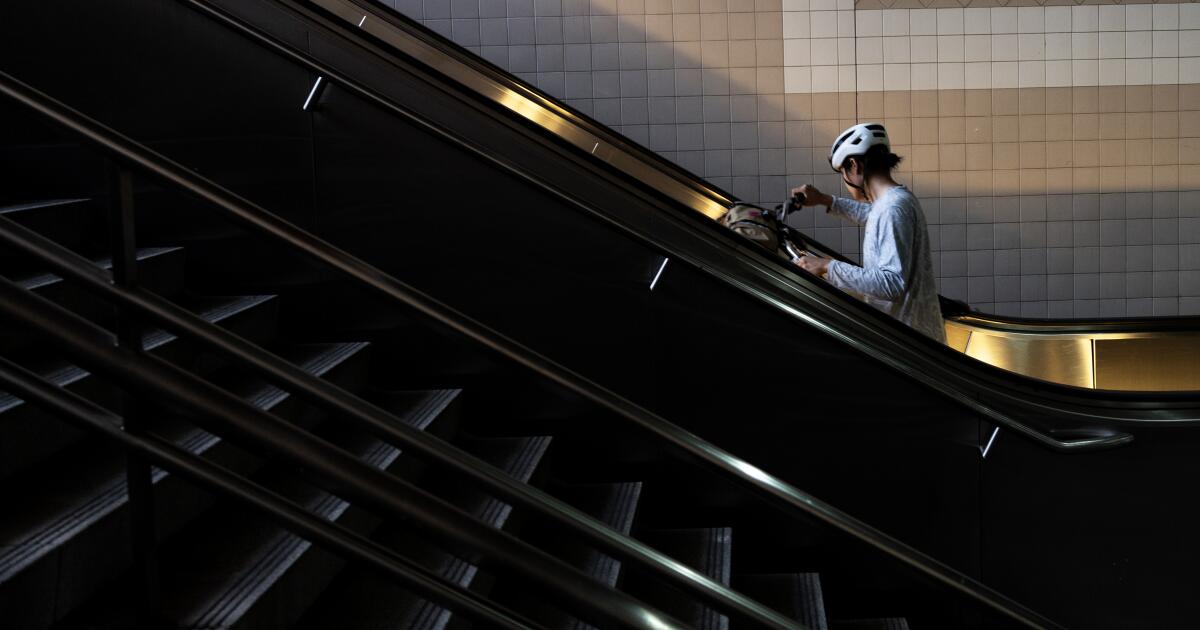‘The Conjuring: Last Rites’ creeps its way to another box office win for horror genre
It’s the year for horror and “The Conjuring: Last Rites” was no exception. Its opening weekend tipped the genre over $1 billion in earnings for this year’s domestic box office.
The horror sequel raked in $83 million domestically in 3,802 theaters, making it the third-highest domestic opening for a horror movie, behind “It” and “It: Chapter Two.” It’s now the largest horror opening internationally, with $104 million in earnings outside of North American theaters.
The film also broke records for the “Conjuring” universe, securing the biggest opening weekend in the franchise. The movie’s performance is a testament to the franchise’s success in producing classic horror movies since the first film released in 2013, said Paul Dergarabedian, senior media analyst for the data firm Comscore.
“Audiences know when they go in to see ‘The Conjuring,’ the minute this scary, ominous music comes up with the Warner’s logo, you know you’re in for a wild ride,” Dergarabedian said.
The film has received mixed reviews from critics, carrying a 55% on Rotten Tomatoes and a “B” CinemaScore.
Patrick Wilson and Vera Farmiga return to the big screen in the ninth installment of “The Conjuring” as the paranormal investigators Ed and Lorraine Warren, who attempt to vanquish a demon from a family’s home.
“Last Rites” also handed Warner Bros. Pictures yet another opening weekend box office win, becoming the distributor’s eighth No. 1 debut win this year and the studio’s seventh film in a row to debut with more than $40 million domestically.
The movie’s opening weekend numbers are nearly double that of other successful horror movies this year, including Zach Cregger’s August sleeper hit “Weapons,” “Final Destination: Bloodlines” and “Sinners” — all of which are Warner Bros. releases.
“It just shows how arguably more than any other genre, horror has stood the test of time,” Dergarabedian said. “That’s because there’s nothing quite like seeing a horror movie in a darkened room full of strangers.”
The horror genre last crossed the $1-billion mark in 2023. Meeting that threshold this early in the year is unprecedented, Dergarabedian said, “because usually you need a full year of horror movie box office to bank that much cash.”
Upcoming horror films like “Black Phone 2” and “Five Nights at Freddy’s 2” are likely to boost that number, Dergarabedian said.
“Last Rites” blew past other titles at the box office this weekend. Disney’s filmed version of “Hamilton” landed in second place with $10 million domestically. The film was “perfect counterprogramming” to “Last Rights,” Dergarabedian said.
The rest of the top spots were taken by several holdover titles. “Weapons” secured third place during its fifth weekend, bringing in $5.4 million in earnings in North American theaters. The movie’s debut partner, “Freakier Friday,” took fourth place with $3.8 million.
The crime caper “Caught Stealing,” which debuted last weekend, rounded out the top five with $3.2 million in domestic earnings.
Luna writes for the Associated Press.

